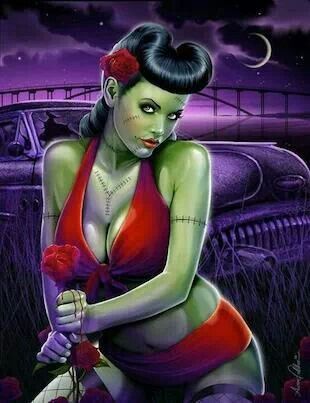Post by MoMo on Mar 5, 2012 19:32:51 GMT -6

A psychic vampire is a person or being who feeds off the "life force" of other living creatures. Psychic vampires are represented in the occult beliefs of various cultures and in fiction. There is no medical recognition or scientific consensus supporting this claim.
A 2007 scholarly survey carried out upon people claiming to be vampires, either psychic or sanguinarian (blood drinkers) that showed anecdotal evidence of a higher than normal incidences of certain illnesses and conditions such as anemia, fibromyalgia, and hemophilia. Whether or not they actually suffer from such conditions was not evaluated by medical professionals.
TERMINOLOGY
The term psychic vampire is sometimes abbreviated psy-vamp (or psi-vamp). Alternate terms for these entities include energy vampire, energy predator, energy parasite, and energivore, as well as psionic vampire, pranic vampire, and empathic vampire.
Terms used to describe the substance or essence that psychic vampires take or receive from others include: energy, qi (or ch'i), life force, prana, and vitality.

EMOTIONAL VAMPIRE
Bernstein uses the phrase "emotional vampire" for people with various personality disorders who are often considered to drain emotional energy from others.
ENERGY VAMPIRE
The term "energy vampire" is also used metaphorically to refer to people whose influence leaves a person feeling exhausted, unfocused, and depressed, without ascribing the phenomenon to psychic interference.

Dion Fortune wrote of psychic parasitism in relation to vampirism as early as 1930 in her book, Psychic Self-Defense. Fortune considered psychic vampirism a combination of psychic and psychological pathology, and distinguished between what she considered to be true psychic vampirism and mental conditions that produce similar symptoms. For the latter, she named folie à deux and similar phenomena.
The term "psychic vampire" was popularized in the 1960s by Anton LaVey and his Church of Satan. LaVey wrote on the topic in his book, The Satanic Bible, and claimed to have coined the term. LaVey used psychic vampire to mean a spiritually or emotionally weak person who drains vital energy from other people, or a paranormal entity within such a person, allowing the psychic draining of energy from other people. Adam Parfrey likewise attributed the term to LaVey in an introduction to The Devil's Notebook.

Others have defined a "psychic vampire" in the more traditional sense. Michelle Belanger has written a book entitled The Psychic Vampire Codex, which defines psychic vampires as people who, because of limited ability or complete inability, are unable to generate their own "life force" and must feed off of others' in order to stave off uncomfortable physiological symptoms, such as headaches, dizziness, irritability, etc. They do not claim to be 'immortal' in a conventional sense, although many do claim to recall past lives. [Michelle Belanger|Belanger] has also edited a book called Vampires In Their Own Words, a collection of essays by many who claim to be psychic vampires. The authors range in beliefs, ideas, interpretations, and religious and spiritual beliefs. There is also a section written by those who are not members of the psychic or blood-drinking vampire community.
A modern literary interpretation of the process of transitioning from a normal human to an energy vampire, a being made from pure energy that no longer requires a physical body, can be found in Silvia Hartmann's book "Vampire Solstice" 2006 as a metaphor for processes of actually existing energy exchanges.
The terms "energy vampire" and "psychic vampire" have been used as synonyms in Russia since the fall of the Soviet Union as part of an occult revival.








